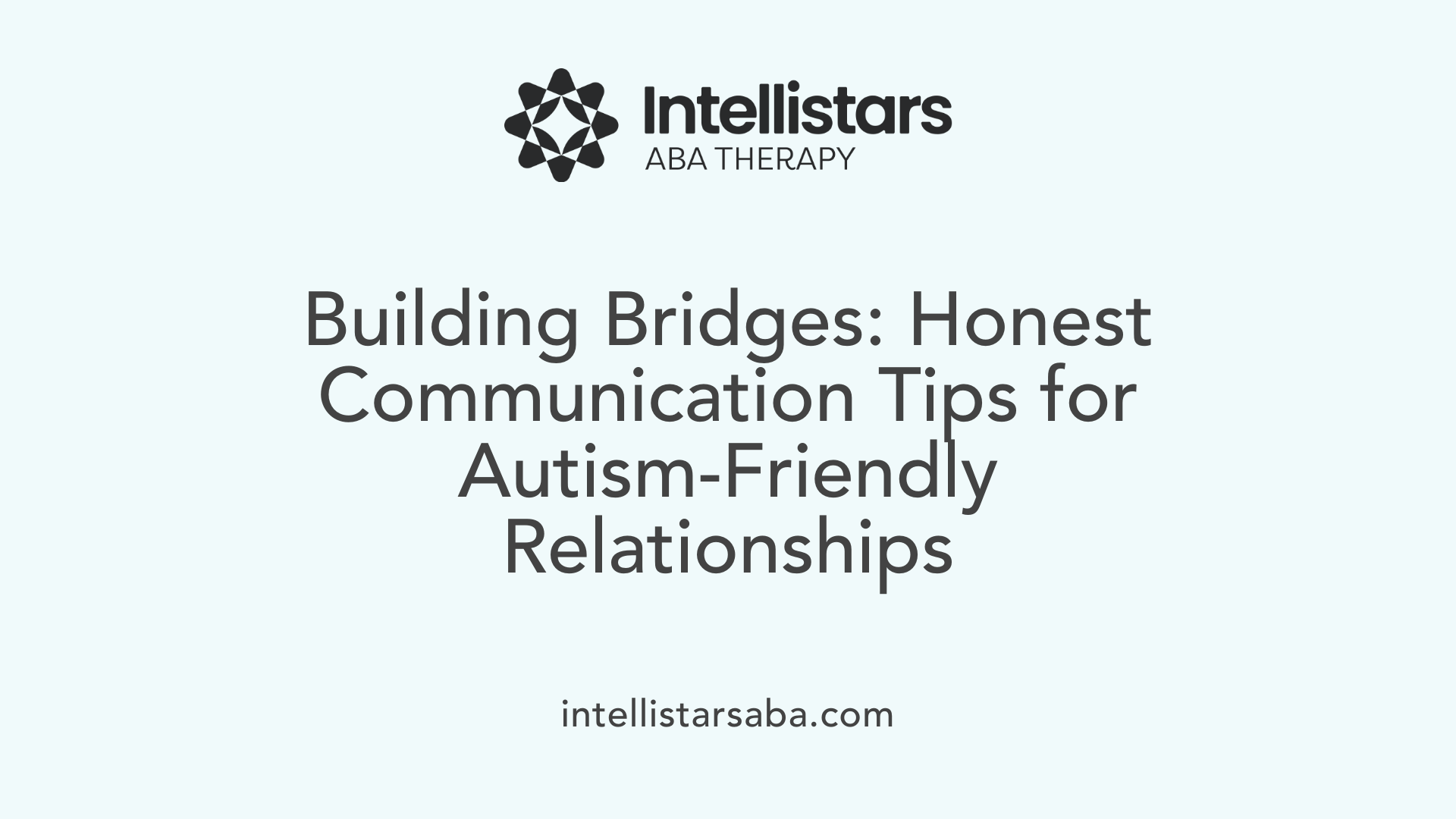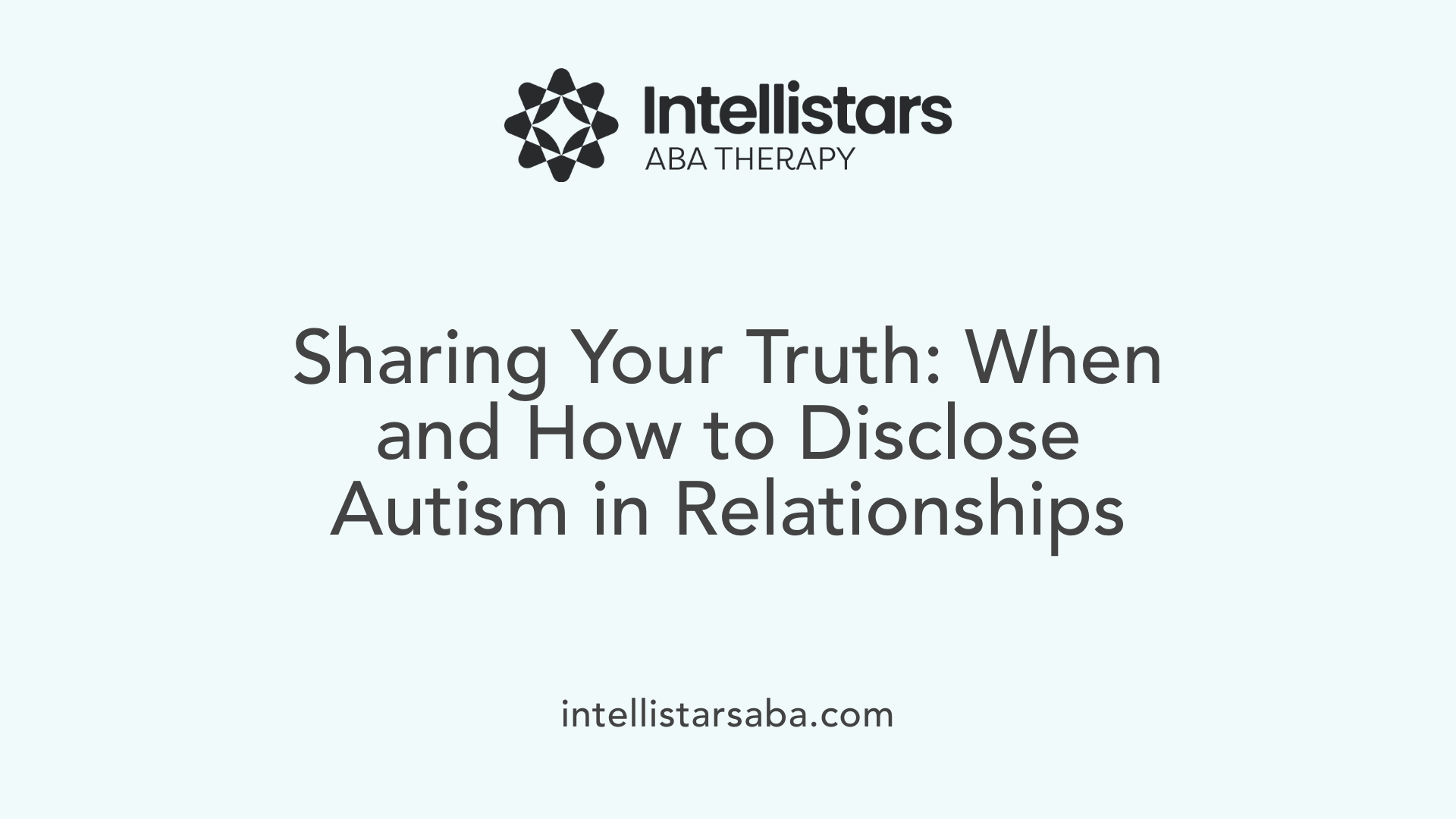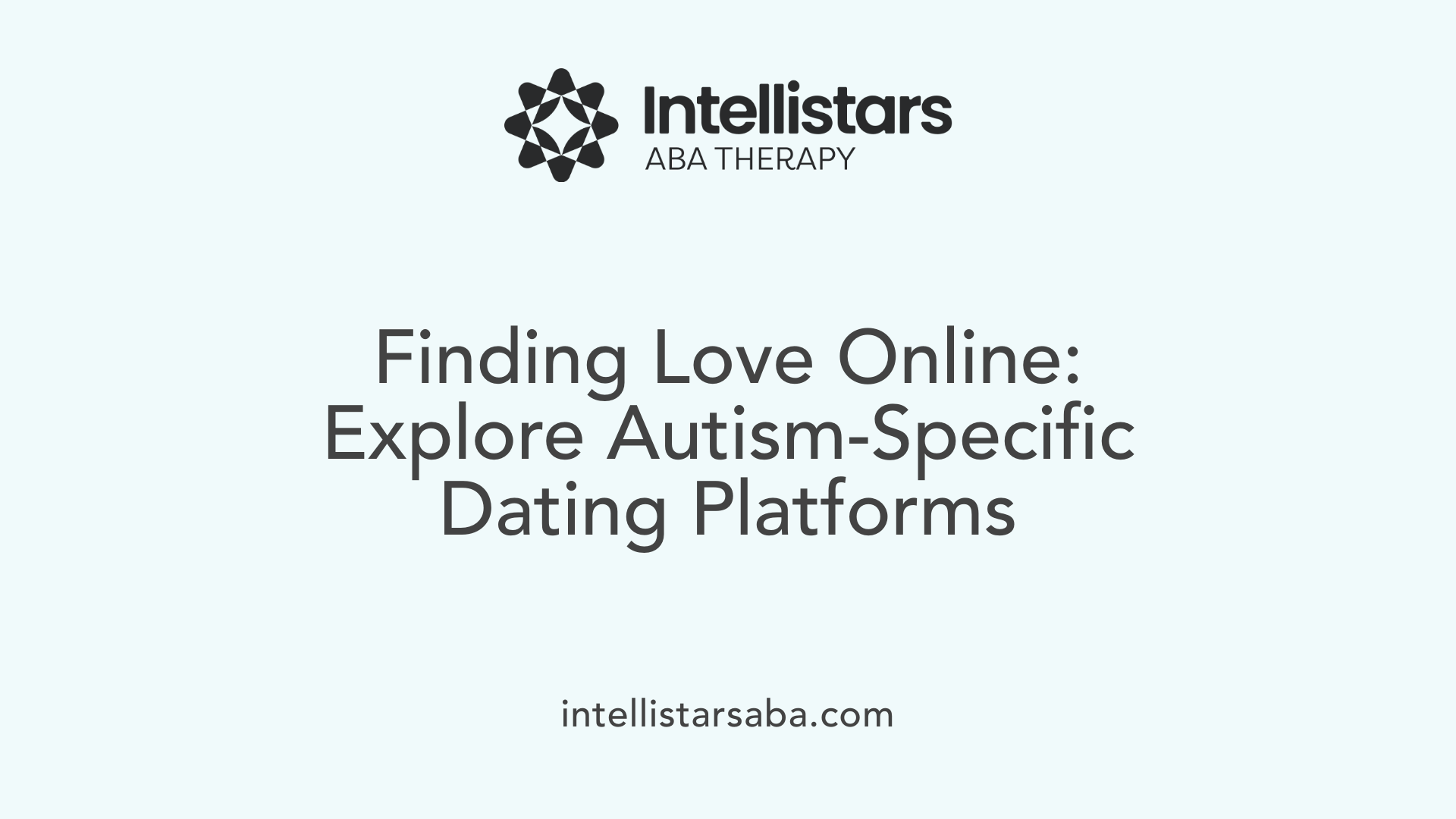Understanding the Unique Landscape of Autism and Relationships
Autistic individuals often face distinctive challenges and opportunities when it comes to dating and romantic relationships. From sensory sensitivities to communication differences, their experiences are shaped by a unique set of social and emotional factors. This article explores the considerations, resources, and platforms that can support autistic individuals in building meaningful romantic connections, illuminating pathways to love that honor neurodiversity.
Challenges and Considerations in Autism Dating

What are some considerations and challenges for autistic individuals in dating and romantic relationships?
Autistic adults often experience unique challenges when it comes to dating and building romantic connections. Difficulties with recognizing social cues, such as understanding body language or subtle hints, can make interpreting a partner's feelings or interest more complex. Communication styles tend to be more direct and honest, which is usually appreciated but may sometimes be misunderstood or require patience.
Sensory sensitivities pose another hurdle. Loud environments, crowded spaces, or certain textures and smells during dates — like restaurants or concerts — can cause distress. Preference for routine and predictability can also make spontaneous or unfamiliar dating scenarios overwhelming.
Safety precautions are vital. Meeting in public places, informing trusted friends or family about plans, and being cautious with personal information online help ensure personal safety. Setting clear boundaries about physical touch and emotional availability is essential for mutual comfort.
Deciding whether to disclose an autism diagnosis is a personal choice. Some may choose a ‘soft disclosure’ initially, sharing details once trust is established, while others prefer to wait. Honest conversations about expectations, boundaries, and relationship goals enhance understanding.
Support networks and resources tailored for neurodivergent adults — such as specialized dating apps like Hiki or social skills workshops — are valuable. These tools foster safer, more accepting environments where autistic individuals can meet, share interests, and develop meaningful relationships, despite the challenges.
In summary, understanding and patience — both from autistic individuals and their partners — are fundamental. Recognizing personal needs, planning accessible activities, and maintaining open dialogue can greatly improve the dating experience for autistic adults.
Choosing the Right Activities and Places for Dates
 Autistic individuals often have specific sensory sensitivities and routines, which influence their choice of date activities and venues. Selecting environments that are comfortable and familiar can greatly enhance the dating experience, reducing stress and overstimulation.
Autistic individuals often have specific sensory sensitivities and routines, which influence their choice of date activities and venues. Selecting environments that are comfortable and familiar can greatly enhance the dating experience, reducing stress and overstimulation.
Accessible date options include quiet cafes, parks, or nature walks, where sensory input is manageable and the atmosphere is relaxed. These settings enable conversation and connection without overwhelming noise or crowds, making them ideal for autistic adults who prefer low-stimulation environments.
Sensory considerations are vital when planning activities. For example, outdoor parks with open spaces or indoor spaces with soundproofing can minimize sensory overload. When choosing venues, it’s beneficial to verify noise levels and crowd sizes beforehand, ensuring the environment aligns with personal comfort levels.
Creating a comfortable environment also involves practical aspects like good seating arrangements, low lighting if preferred, and contingency plans in case the planned activity becomes overwhelming. Communicating preferences openly with the partner before the date helps establish mutual understanding and ensures activities suit both individuals’ needs.
Overall, thoughtful planning around accessible, sensory-friendly, and familiar places fosters positive romantic experiences for autistic adults. Adjustments and flexibility are key, allowing each person to enjoy the moment and build genuine connections without sensory or environmental stressors.
Effective Communication and Honesty in Relationships

What are some considerations and challenges for autistic individuals in dating and romantic relationships?
Autistic adults often navigate unique hurdles in dating due to differences in social interaction, communication styles, and sensory sensitivities. Challenges such as understanding subtle social cues, interpreting emotions, or managing overwhelming environments can complicate building romantic connections.
To foster successful relationships, autistic individuals are encouraged to seek partners who share similar interests or values, which enhances mutual understanding. Engaging in honest and direct communication helps clarify expectations and boundaries, reducing misunderstandings.
Reading social cues can be tricky, as many autistic people find it hard to interpret body language or non-verbal signals. Learning to ask clarifying questions or express oneself clearly makes interactions more straightforward.
Safety is a crucial aspect. Meeting in public places, informing a trusted person about plans, and setting clear boundaries contribute to a safer dating experience. Additionally, discussing whether or when to disclose one's autism diagnosis can help manage expectations and promote authenticity.
Support resources such as social skills programs and therapy tailored to autistic adults can provide valuable tools for navigating romantic relationships.
In summary, the journey to love for autistic individuals involves embracing honesty, understanding personal needs, and seeking supportive environments that respect neurodiversity.
The Role of Autism Disclosure in Romantic Relationships

When is the right time to tell a partner about autism?
Deciding when to disclose an autism diagnosis is a deeply personal choice. Some individuals prefer to share early in a relationship to establish honesty, while others might choose to wait until they feel more comfortable or believe the relationship is progressing seriously. Factors influencing this decision include the level of trust, the nature of the connection, and personal comfort. Many find that gradually discussing their autism through 'soft disclosure'—sharing traits or experiences—can help gauge the partner’s understanding.
What strategies can autistic adults use to disclose their diagnosis?
Effective approaches include choosing private, comfortable settings for conversations and being clear about one's needs and feelings. Preparing what to say beforehand can ease anxiety. Using straightforward language and sharing specific examples of how autism influences daily life or social interactions helps foster understanding. Some may use written communication or digital messages first, especially if verbal expression feels challenging. It’s also helpful to explain that autism is just one aspect of identity and does not define all facets of the person.
How does disclosure impact relationships?
Disclosing autism can strengthen connections by promoting transparency and mutual acceptance. It allows partners to understand behavior and communication styles better, reducing misunderstandings and fostering empathy. Conversely, negative reactions or stigma can pose hurdles, making it crucial for autistic individuals to assess their comfort levels and trust in a partner before sharing. Overall, honest communication about autism can lead to more authentic and supportive relationships, provided it occurs in a safe, respectful environment.
| Aspect | Considerations | Examples / Tips |
|---|---|---|
| Timing | When to disclose; personal and relationship readiness | Share early if comfortable; wait until enough trust is built |
| Strategies | How to communicate; methods used | Prepare key points; choose comfortable setting; use written or verbal modes |
| Impact | Effects on relationship dynamics | Can enhance understanding; may lead to stigma if not accepted |
| Resources | Support for disclosure | Autism communities, counseling, online guides |
Supporting Autistic Individuals Through Education and Resources
What resources and support options are available for autistic individuals seeking romantic connections?
Autistic adults interested in dating or forming romantic relationships have access to a variety of tailored resources and support systems. Specialized dating apps like Hiki, which is designed specifically for the neurodivergent community, provide a safe space that emphasizes safety measures such as verification processes, respect, and understanding. These platforms often include features like profile verification and detailed trait descriptions to match users based on shared interests and values.
In addition to online platforms, numerous social skills groups and programs focus on enhancing communication, confidence, and relationship-building abilities. For instance, UCLA's PEERS for Dating offers targeted training to help autistic individuals develop social and romantic skills through structured workshops and coaching.
Educational webinars and toolkits are also valuable, often provided by organizations such as Autism Nova Scotia, AIDE Canada, and the Autism Society. These resources include guidance on navigating sexuality, understanding consent, building healthy relationships, and managing sensory sensitivities during social interactions.
Support groups, discussion forums, and peer-led communities like those offered by AANE (Affective and Neurodivergent Empowerment) or local autism organizations foster shared experiences and advice for navigating the complex social landscape of dating. These environments promote understanding, reduce feelings of isolation, and encourage safe engagement.
Counseling and coaching services tailored for neurodivergent individuals and couples are increasingly available. Programs like the Neurodiverse Couples Institute provide relationship counseling that acknowledges and respects neurodiverse communication styles and emotional needs. These services support relationship growth, mutual understanding, and conflict resolution.
Family members, partners, and caregivers play a crucial role by facilitating open discussions about boundaries, consent, and expectations. They can also assist in creating inclusive environments that enable autistic individuals to pursue romantic relationships with confidence and safety.
Overall, combining technological tools, community support, educational resources, and professional guidance creates a comprehensive support network that empowers autistic adults to build meaningful romantic connections.
The Rise of Specialized Platforms for Neurodiverse Dating

Are there autism-specific dating platforms or communities?
Yes, the landscape of online dating has expanded to include platforms specifically designed for neurodivergent individuals, particularly those on the autism spectrum. These platforms aim to address the unique challenges faced by autistic adults in traditional dating environments by providing safer, more understanding spaces for connection.
One prominent example is Hiki, a free app crafted explicitly for autistic, ADHD, and other neurodivergent users. Hiki focuses on cultivating a supportive community where members can find friendship, love, and community. The platform emphasizes safety with features like profile verification, detailed profiles highlighting neurodivergent traits, and strict policies against bullying and discrimination. Nearly 200,000 users worldwide use Hiki to connect in an environment that encourages authenticity and acceptance.
In addition to Hiki, Aspie Singles caters specifically to people with Asperger’s Syndrome, providing a judgment-free zone for social and romantic bonds. Spectrum Singles offers a unique matching process based on a compatibility test that assesses neurological traits, aiming to foster meaningful relationships founded on mutual understanding.
Broader platforms such as Special Bridge and Mattr also serve the neurodivergent community, offering specialized tools, resources, and supportive groups designed to improve social connections and dating experiences.
These specialized communities acknowledge the importance of tailored approaches to dating, understanding that communication styles, sensory sensitivities, and social cues significantly differ among neurodivergent individuals. By offering dedicated spaces, these platforms help reduce feelings of isolation and promote genuine, understanding relationships.
Features of platforms like Hiki
| Feature | Description | Benefit |
|---|---|---|
| Profile verification | Uses ID and location checks | Ensures safety and trust |
| Neurodivergent traits profile | Highlights individual traits and interests | Facilitates meaningful matches |
| Messaging and video features | Allows safe communication | Builds connection securely |
| Privacy controls | Users can control what they share | Protects personal information |
| Anti-bullying policies | Strict rules against abuse | Creates a respectful environment |
Safety and verification measures
Safety is a critical focus for autism-specific platforms. Verification processes, such as ID checks, help confirm identities and reduce risks of misrepresentation. Many platforms also implement strict anti-harassment policies and provide tools for users to block or report inappropriate behavior. The environment is designed to foster trust, transparency, and respect—crucial for users who might be more vulnerable online.
User community experiences
Members of these platforms report feeling less alone and more accepted, citing the community’s understanding of the specific needs and social cues associated with autism. Many find that these spaces help them overcome obstacles faced in mainstream dating, such as social anxiety and sensory overload. The shared understanding creates a nurturing environment where authentic relationships can flourish.
| Aspect | User Feedback | Impact |
|---|---|---|
| Sense of community | Feeling understood and supported | Increased confidence in social interactions |
| Reduced miscommunication | Clarity and honesty encouraged | Better relationship outcomes |
| Safe environment | Trust in safety protocols | Greater willingness to engage |
This surge in autism-focused dating platforms reflects a broader recognition of the diverse needs within the neurodivergent community. By providing specialized, safe, and supportive spaces, these platforms are helping many autistic adults find love, companionship, and belonging.
The Impact of Media and Representation on Autism Dating
How do shows like 'Love on the Spectrum' shape public perceptions of autistic dating?
'Love on the Spectrum' is a documentary series that offers viewers authentic glimpses into the romantic lives of autistic individuals. By showcasing real stories and diverse experiences, it humanizes autism and challenges common stereotypes. The show highlights that autistic people desire love, companionship, and meaningful relationships, much like neurotypical individuals. Its positive portrayal helps break down misconceptions that autism prevents meaningful romantic pursuits.
What is the influence of media on stereotypes and misconceptions?
Media, especially mainstream television and movies, has historically depicted autistic individuals with limited accuracy, often emphasizing stereotypes or portrayals of social inability. These portrayals can reinforce false ideas, making it harder for neurodivergent individuals to be seen beyond their diagnosis. However, accurate and diverse representations, like in 'Love on the Spectrum,' contribute to greater understanding and acceptance.
How does positive representation promote acceptance and understanding?
Authentic media portrayals foster empathy by allowing viewers to see the complexity and individuality of autistic people. They encourage social acceptance and reduce stigma, supporting social inclusion. Representation helps autistic individuals feel seen and validated, which can boost their confidence in exploring relationships. It also educates the broader public about the realities of dating with autism, promoting more inclusive attitudes.
Table of media influence on autism and dating
| Aspect | Positive Impact | Challenges | Examples |
|---|---|---|---|
| Raising awareness | Showcases diverse experiences, broadening understanding | Risk of misinterpretation if not accurate | 'Love on the Spectrum', documentaries |
| Breaking stereotypes | Normalizes autistic dating | Persistent stereotypes around social skills | Various TV series and social campaigns |
| Encouraging acceptance | Fosters empathy and inclusion | Overgeneralization of experiences | Advocacy campaigns and films |
| Promoting dialogue | Opens up conversations on neurodiversity | Potential for misunderstanding | Podcasts, social media discussions |
What can media do to improve representation?
Media creators can focus on authentic storytelling, including personal narratives from autistic individuals. Avoiding outdated stereotypes and emphasizing a spectrum of experiences helps portray the diversity within the neurodivergent community. Collaborations with autistic people during production ensure truthful, respectful portrayals. Such efforts can significantly impact perceptions of autistic dating, encouraging society-wide acceptance.
Future Perspectives and Continual Growth in Autism Love Stories
What resources and support options are available for autistic individuals seeking romantic connections?
Autistic individuals interested in building romantic relationships have access to a range of supportive resources and avenues tailored specifically for their needs. Specialized dating platforms, such as Hiki, are designed for neurodivergent users, offering safe environments where people can meet, chat, and connect based on mutual understanding and shared experiences.
Beyond dating apps, social skills groups are vital in helping autistic individuals enhance communication, increase confidence, and navigate social dynamics more comfortably. These groups often focus on developing conversation skills, understanding social cues, and practicing relationship-building techniques.
Educational webinars and resource kits from organizations like Autism Nova Scotia and AIDE Canada provide valuable guidance around topics such as sexuality, establishing healthy boundaries, and exploring relationships safely. These materials are intended to empower autistic individuals by providing knowledge and tools suited to their unique experiences.
Online communities and discussion forums, including those hosted by the Asperger/Autism Network (AANE) and various local support groups, offer a space for sharing personal stories, advice, and encouragement. Such peer-led platforms foster understanding and reduce feelings of isolation.
Additionally, programs like UCLA’s PEERS for Dating and the Neurodiverse Couples Institute provide targeted training to help improve relationship skills, develop mutual understanding, and support couples in navigating the intricacies of neurodiverse partnerships. Many of these organizations also offer counseling and coaching tailored to neurodiverse couples.
Family members and partners play a crucial role in fostering romantic development too. Encouraging open and honest communication, providing education about boundaries and consent, and creating inclusive environments all contribute to healthier, more supportive pathways to love.
As awareness and understanding of neurodiversity continue to grow, the availability of these resources is expanding, creating more opportunities for autistic people to find fulfilling, loving relationships—an encouraging trend that signifies ongoing progress in the future of autism dating and intimacy.
Embracing Love with Confidence and Clarity
While autism presents certain challenges, it also brings unique strengths and qualities that can enrich romantic relationships. By leveraging accessible resources, engaging with specialized platforms like Hiki, and fostering open communication and self-awareness, autistic individuals can navigate the dating world with greater confidence. Education, understanding, and societal acceptance continue to grow, creating a future where neurodiverse love stories are celebrated and supported. Embracing who you are and seeking authentic connections is the key to fulfilling relationships, regardless of neurodivergent status.
References
- Dating tips for autistic adults | Autism Speaks
- Hiki | Autism, ADHD, Neurodivergent Dating App & Social Community
- Dating with Autism: Overcoming the Challenges
- My experiences in the world of dating on the spectrum | Autism Speaks
- Dating Someone with Mild Autism | Private Therapy Clinic
- Autism and Online Dating: A Scoping Review
- Love and Dating Resources - Autism Research Institute
- The Real-Life Dating Boot Camp That Inspired 'Love on the Spectrum'






